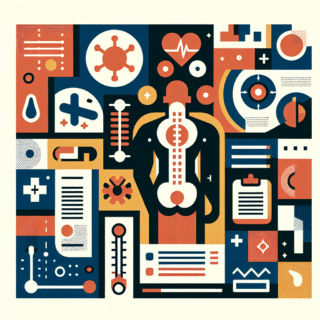
More Pain Management & Rehabilitation Articles
Understanding Back Pain Relief Nashville: A Patient’s Guide

Back pain is one of the most common reasons people visit a doctor, miss work, or alter daily routines. This guide explains common causes, practical relief options, and how to find appropriate care in the Nashville area. Whether you’re dealing with a sudden strain or ongoing discomfort, understanding treatment choices and local resources helps you make informed decisions about your recovery.
Lower back pain: common causes and when to seek care
Lower back pain can arise from muscle strains, disc problems, arthritis, or referred pain from other conditions. Acute episodes often follow lifting or twisting, while chronic pain can result from degenerative changes. Red flags that warrant immediate medical attention include severe weakness, numbness in the legs or groin, and loss of bladder or bowel control. For many people with persistent symptoms, a primary care visit, imaging, or referral to a specialist may be recommended.
Diagnosis and treatment options
Evaluation usually begins with a history and physical exam. Imaging like X-rays or MRI is used selectively. Conservative measures are the first line: activity modification, targeted exercise, heat or cold packs, and over-the-counter pain relievers. Physical therapy programs focus on core strengthening, flexibility, and posture training. For moderate to severe or refractory cases, options include prescription medications, injections such as epidural steroid injections, and in some cases surgical consultation.
Local resources: finding back pain care in Nashville
Residents searching for back pain Nashville clinics and specialists will find a mix of pain management centers, orthopedic surgeons, and rehabilitation therapists. If you prefer coordinated care, look for clinics that offer multidisciplinary teams including physical therapists and pain specialists. For patients in Nashville, back pain nashville tn programs often emphasize non-surgical rehabilitation before recommending invasive procedures. Many practices also provide patient education, ergonomic assessments, and return-to-work planning tailored to Nashville back pain concerns.
Non-surgical strategies for lasting relief
A combination of approaches usually works best. Regular low-impact exercise like walking, swimming, or guided Pilates helps build endurance and reduce recurrence. Posture correction and workstation adjustments are critical for people with desk jobs. Weight management and quitting smoking can also improve outcomes. Mind-body strategies such as cognitive behavioral therapy, mindfulness, or graded activity programs can reduce the disability associated with chronic pain.
What to expect at a pain management visit
When you seek back pain relief Nashville providers will often review imaging, discuss prior treatments, and perform a focused exam. Treatment plans are individualized; goals include pain reduction, improved function, and a plan to prevent future flare-ups. If injections or procedures are considered, your clinician will explain potential benefits and risks. For many patients, short-term procedural relief paired with a physical therapy plan provides the best long-term result.
Practical tips for day-to-day care
Simple habits can reduce episodes of nashville back pain. Use proper lifting mechanics—bend at the hips and knees and avoid twisting. Alternate sitting and standing during long tasks, and use lumbar support when seated. Incorporate stretching and short movement breaks into your day. When symptoms flare, controlled activity is usually better than prolonged bed rest. If you’re unsure, consult your provider before resuming strenuous activities.
For reliable health information on causes and basic management, see the National Institute of Neurological Disorders and Stroke’s overview of low back pain at NINDS: Low Back Pain.
For practical, prevention-focused steps tailored to daily life, read our detailed guide with actionable strategies: Five tips for preventing and easing back pain.
- Work with your clinician to develop a stepwise plan starting with conservative care.
- Stay active with low-impact exercise and targeted strengthening for lasting improvement.
- Make ergonomic and lifestyle adjustments to reduce recurrence of pain.
- Seek multidisciplinary care in Nashville for complex or persistent cases.
Q: When should I see a doctor for back pain?
See a clinician if pain is severe, persistent beyond a few weeks, accompanied by neurological symptoms (numbness, weakness), or interferes with daily activities. Immediate evaluation is needed for sudden loss of bowel/bladder control or progressive leg weakness.
Q: Can physical therapy help with chronic back pain?
Yes. Physical therapy provides individualized exercises, posture training, and education that reduce pain and improve function. Many Nashville back pain relief clinics integrate rehab early in the treatment plan.
Q: Are injections or surgery always necessary?
No. Most people improve with non-surgical treatments. Injections can offer temporary relief for specific conditions, and surgery is reserved for selected cases such as severe nerve compression or structural issues unresponsive to conservative care.
Other Articles You May Find of Interest...
- How to Choose the Right Surgeon for Hip Replacement Surgery
- How to Identify and Treat Bone Bruising in the Ankle?
- Is Your Heel Pain a Sign of a Slight Achilles Tear?
- Effective Pain Relief Strategies for Managing Degenerative Disc Disease
- Relieving Hip Pain While Seated: Tips for Comfort and Mobility
- Relieving Forearm Muscle Pain: Effective Strategies for Recovery
- Can You Safely Take Gabapentin With Ibuprofen?














